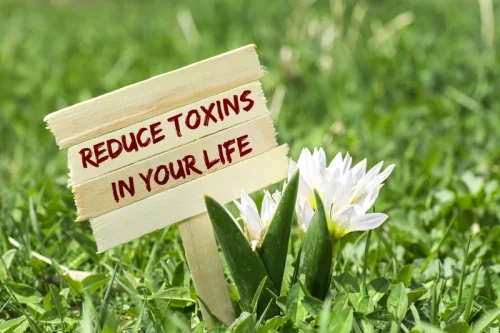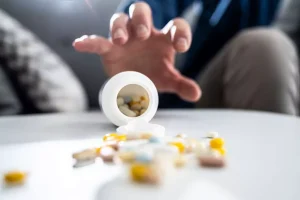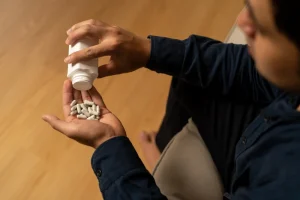
Now that you know the facts on some common misconceptions about addiction, you may find you recognize some truths in yourself. If you or a loved one are struggling with addiction, or if any of the above addiction myths sound all too familiar, Avenues Recovery is here to support you. Contact us 24/7 for guidance and help, we’re waiting to help you. Scientists and researchers have categorized addiction as a “complex disease.” But that doesn’t mean there is no help or hope for addiction issues.
Myth #5 Rehab doesn’t work.

Dual diagnosis and understanding the effects of prescription drugs are other aspects related to addiction and recovery. To break stigmas, existing beliefs must be challenged and compassion should be promoted. Creating safe spaces for conversations can help individuals feel comfortable seeking help and speaking about their experiences. Education and spreading accurate information can also help break down stigmas. Addiction is a hot topic for discussion and it’s ripe with misinformation and myths. It is a highly charged topic and many tend to have strong opinions about it, even if it has not affected them personally.

The Impact of Myths and Misconceptions on Treatment and Recovery
Relapse can be difficult, but it should not be observed as a failure; instead, treatment plans should be adjusted to promote long-term sobriety. In conclusion, comprehending the prevalence of substance use disorder and debunking misconceptions surrounding addiction are necessary for creating a supportive and holistic approach to treatment. By recognizing addiction as a complex disease and addressing it with compassion, we can help someone on their road to recovery. Let us recall not to judge an addict by their addiction, as they are much more than their demons. To further understand the prevalence of substance use disorder, it is important to recognize the adverse effects of prescription drugs.
Myths & Truths about Addiction Recovery: Breaking the Stigma of Addiction
In fact, rehab facilities have made great strides in developing treatments for people who struggle with drug or alcohol abuse. Just like any other disease, you can find relief for this disorder. In this era of social media having immense importance in influencing public opinion, addressing stigmas regarding addiction online is a must. We can use digital platforms to disprove myths, prevent the spread of false information, and foster constructive conversations about addiction as a disease.
Can medication-assisted treatment help with opioid use disorder, alcohol abuse, or drug abuse?
From the limitations of willpower to the universal impact of addiction on individuals from all walks of life, we’ll explore the reality behind this pervasive issue. Brace yourself https://ecosoberhouse.com/ for a revealing journey into the key factors that contribute to addiction. Addiction is seen as a complex disease, though not fully understood in the medical community.
Myth: Addiction is a choice. If someone wanted to stop using drugs or alcohol, they could.

These changes can lead to compulsive behavior, loss of control over impulses, and a focus on obtaining and using the addictive substance. Addiction rewires the brain and negatively alters the brain’s reward pathway. Substance use can lead to profound changes in the brain, causing uncontrollable impulses and a focus on the addictive substance. The face of addiction can be anyone, regardless of age, income, ethnicity, religion, family, or profession. Addiction does not discriminate and can affect individuals with stable jobs and family lives. Sandstone Care offers compassionate environment and comprehensive treatment tailored to unique needs.
Medication-assisted treatment (MAT)
Treatment should be affordable and accessible to everyone seeking recovery. Life without drugs or alcohol is possible with the right support system. Overcome shame and silence by seeking help and supporting others. It doesn’t matter what age, income, ethnicity, religion, family, or profession you are. Shame about addiction makes it hard for people to seek help or talk about it. So, it is important to address these issues and give support to people with addiction.
- Challenge stigmas and promote compassion to foster empathy in society.
- Brace yourself for a revealing journey into the key factors that contribute to addiction.
- Yes, you may have made some poor choices that led you down the road to addiction, but you are bigger than your mistakes.
- Let’s take a look at 5 addiction myths that may be holding you back.
- This is a critical insight that America misses – “to end the epidemic of deaths of despair, we need to target the sources of the despair.” But Angell too embodies many of the myths of addiction.
There are many reasons a person’s body becomes dependent on chemical substances, but it goes beyond who they are inside. When you complete your initial program, it will be wise to avoid the people and situations myths about addiction and recovery that may cause you to crave alcohol or other substances. You might not want to accept a friend’s invitation to head out to a club, or you might skip going to a house party where you know drugs will be present.

One of the most common misconceptions about substance abuse is that it is an active, conscious choice that can be stopped at any time. Some may describe it as choosing drugs over something else, and if they really cared, they would just stop. There is a notion that a person with an addiction wants to live that life and chooses it over everything else. Detoxification helps individuals overcome physical dependence on substances, but it does not address the underlying psychological, emotional, and behavioral issues that contribute to addiction. A common misconception surrounding addiction recovery is that relapse is a sign of treatment failure or a lack of commitment to sobriety. This belief can lead to feelings of shame, guilt, and hopelessness among those who experience relapse, and may discourage them from continuing their recovery journey.